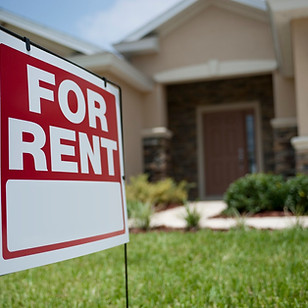Renting A Home That Goes Into Foreclosure
Property foreclosures are not as prevalent as they have been for the past eight years. One of the forgotten groups affected by foreclosures are the tenants who were renting a property that went into a foreclosure and became the ‘collateral damage’ of foreclosures.
When a rental property is foreclosed on, the bank often becomes the new landlord. Banks or mortgage lenders aren’t interested in becoming landlords. Generally, they want to sell the property as quickly as possible and want the tenant evicted immediately to be able to sell the property to a prospective buyer. There are specific state laws when and how a landlord or lender can evict a tenant.
If the property is foreclosed on and sold to another party, that party will likely give you a notice to leave. If you don’t move, the new owner may file an eviction action against you. If that happens, you’ll receive a Summons and Complaint from the court in which you will have a chance to answer the complaint and appear in court. It is prudent to contact an experienced real estate attorney immediately if you receive a Summons and Complaint.
Generally, when a property is sold through the foreclosure process and the tenant has a valid lease, the tenancy is extinguished as a matter of law. As such the tenant no longer has the right to occupy the property. The tenant should contact the purchaser of the home immediately after the foreclosure sale to avoid eviction. Some lenders are willing to offer tenants cash for keys, basically an agreement between the tenant and the lender that allows the tenant to stay in the property for a short period of time.
If you’re the tenant, more than likely you’ll know there is a foreclosure as the bank or mortgage lender, their attorneys and/or the courts will begin sending notices to the property (or taping notices to the front door). You will probably contact your landlord to try to find out what’s going on. It’s possible your landlord has retained a foreclosure defense attorney to extend or stop the foreclosure date. The landlord may be in negotiations with the lender or may be planning on filing bankruptcy to stop the foreclosure. You can also check with the Public Trustee to monitor the foreclosure process yourself.
A landlord who is in foreclosure must return any security deposits and legally, you are still responsible for paying rent to the landlord. Colorado law dictates a landlord must return your security deposit or send a letter to you as to why he is withholding it. You may want to ask your landlord to apply your security deposit to the last month’s rent. If the landlord agrees, make sure you get that in writing.
If the lender attempts to collect rent from you, seek counsel of a qualified and experienced foreclosure defense attorney who also practices tenant/landlord issues. The lender may not have the authority to collect the rent. It’s always a good idea to seek counsel too, to find out all your rights, when you might have to move or what options are available to you to continue living in the property. Your attorney may be able negotiate with the new owner or the lender on issues such as the amount of time given you to move out or negotiating a new lease.
If you are a tenant in a home that is being foreclosed upon, it is important to speak with the landlord right away. Additionally, it is important the the tenant retains a real estate attorney as soon as possible to avoid any legal issues that may arise. A real estate attorney will be able to advise the tenant of the foreclosure process and negotiate an amicable resolution with the lender or purchaser at the foreclosure auction.
If the rental property is subject to a foreclosure action, the tenant should hire a real estate attorney to ensure that the lease agreement is honored and that the security deposit is returned timely. A tenant may have a claim for damages as a result of the landlords breach of the lease agreement.
Call 303-618-2122 to schedule a consult with a foreclosure defense attorney.

